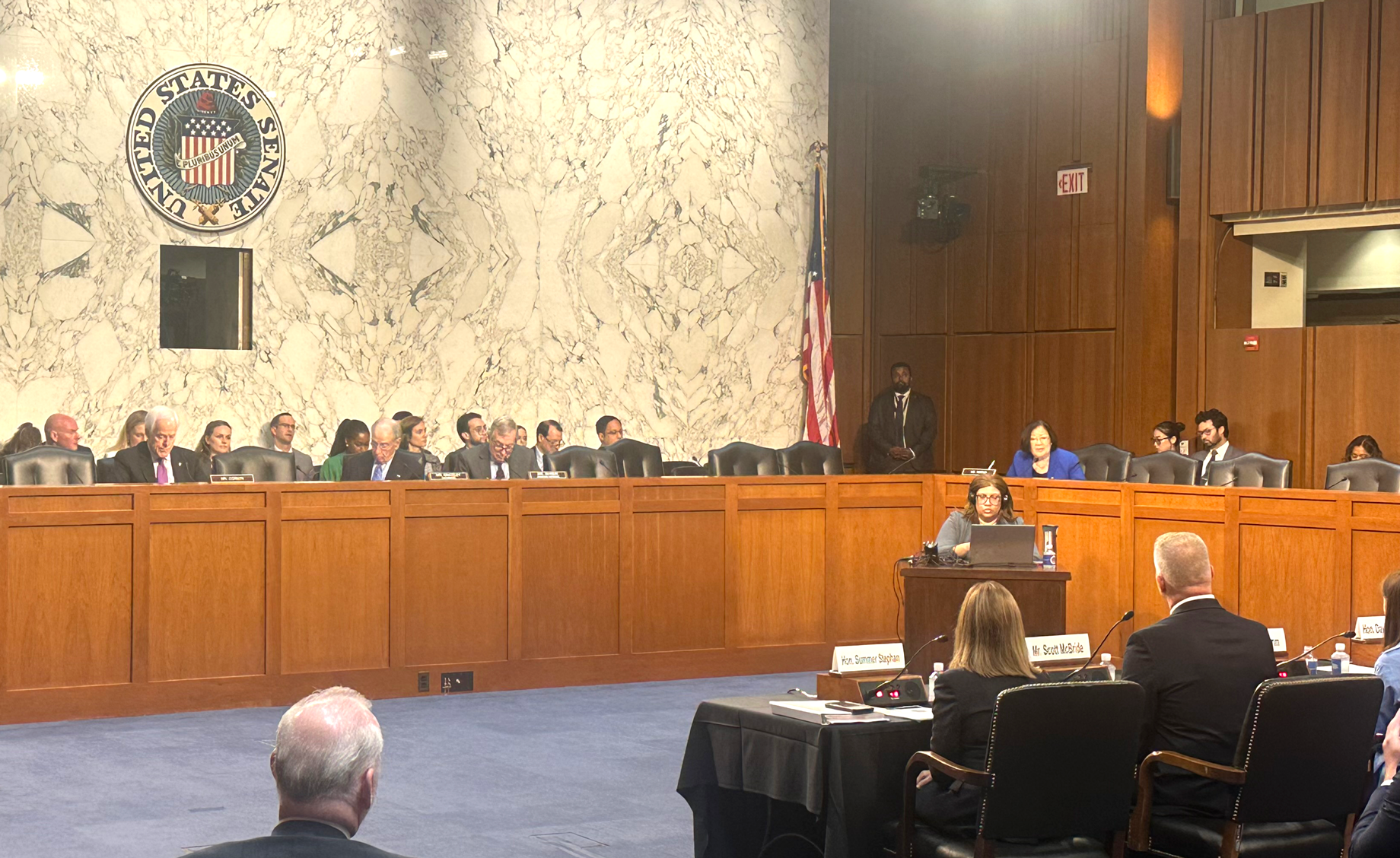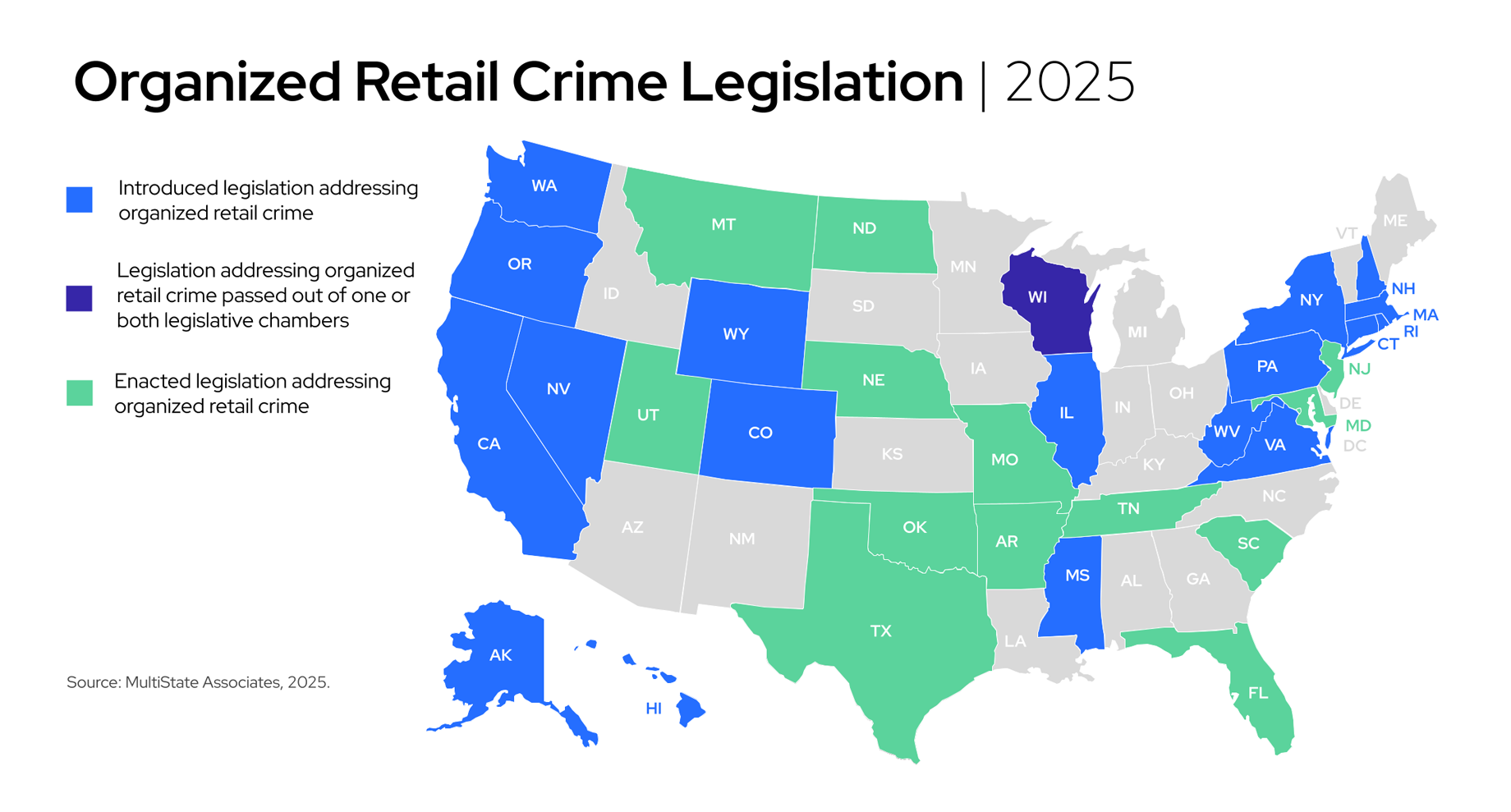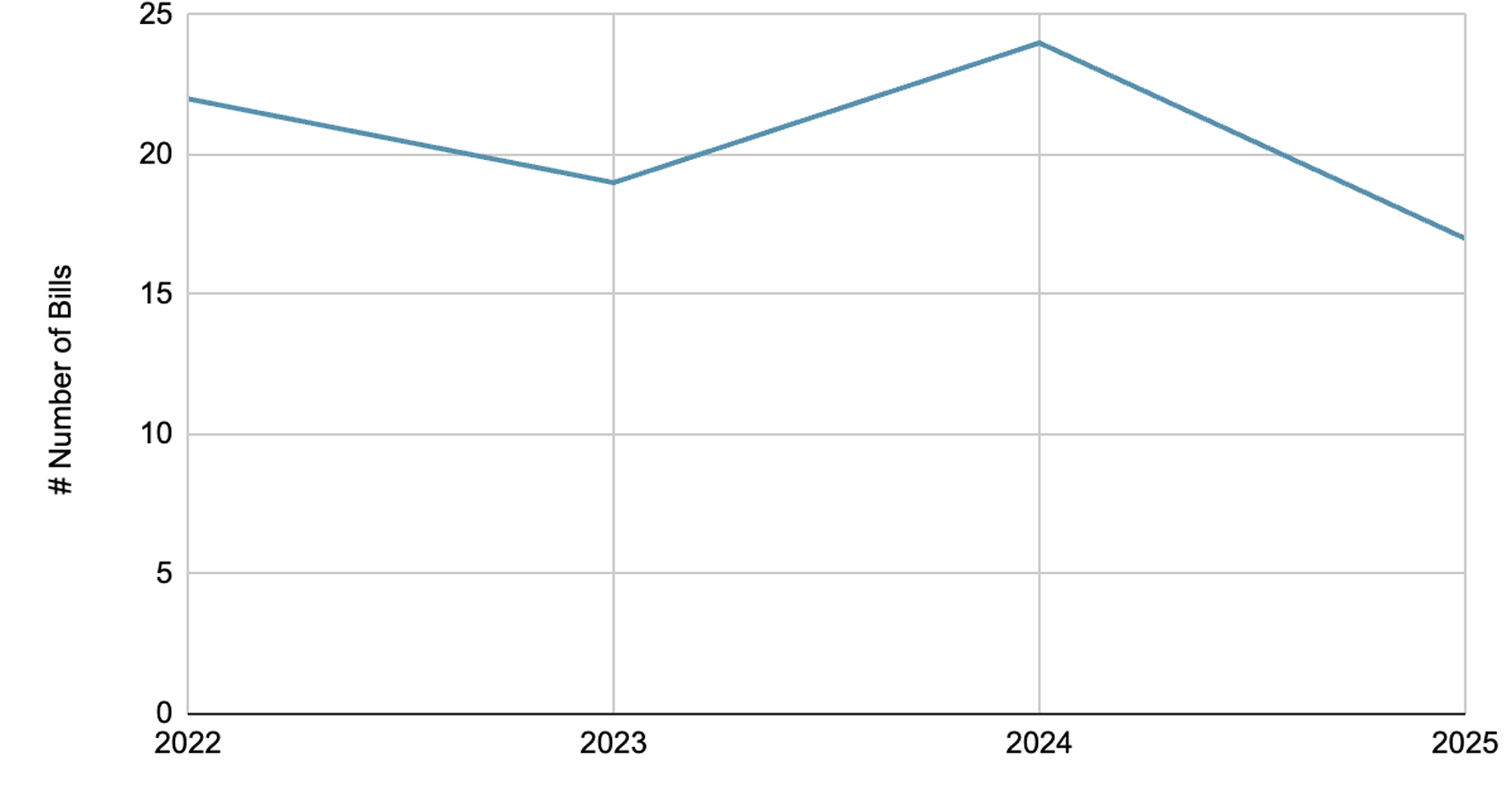On July 15, the U.S. Senate Committee on Judiciary held a hearing entitled “Beyond the Smash and Grab: Criminal Networks and Organized Theft.” The witness panel included Scott McBride, Chief Global Asset Protection Officer, American Eagle Outfitters Inc., David J. Glawe, President & CEO, National Insurance Crime Bureau, Donna Lemm, Chief Strategy Officer, IMC Logistics, and Summer Stephan, District Attorney of San Diego County and President, National District Attorneys Association.
Chairman Chuck Grassley (R-IA) emphasized the economic toll of these crimes—costing the average American family over $500 annually—and voiced strong bipartisan support for S.1404/H.R. 2853, the Combating Organized Retail Crime Act, which would create a centralized coordination center at the Department of Homeland Security to improve information sharing and help law enforcement dismantle these increasingly sophisticated networks.
Grassley opened the hearing by warning that the continued rise of organized retail and supply chain crime represents not just a retail issue but a growing national security threat, as transnational criminal organizations—including drug cartels, human traffickers, and even terrorist groups—are using these crimes to fund broader illicit enterprises. He cited alarming cases, such as an organized crime ring linked to over $100 million in mall thefts and another that stole nearly half a million dollars in Nike merchandise by sabotaging train systems. Grassley underscored that criminals are targeting not only luxury goods but essential items like food and infant formula, jeopardizing public safety when stolen goods reenter the market through online and black-market channels. He criticized the patchwork of civil enforcement tools currently in place as inadequate and called for stronger federal coordination, criminal penalties, and enhanced intelligence sharing.

Ranking Member Richard Durbin (D-IL) acknowledged the seriousness of organized retail crime (ORC) and expressed support for enhanced federal coordination but emphasized the importance of maintaining a balance between federal action and local jurisdiction. He highlighted his long-standing involvement on the issue, referencing his INFORM Consumers Act, which requires online marketplaces to verify and disclose information about high-volume sellers to prevent the resale of stolen goods. Durbin criticized the Federal Trade Commission for failing to enforce the law, noting it has taken no enforcement actions despite receiving hundreds of complaints. Durbin also stressed the need for criminal forfeiture provisions in the bill to strip criminal networks of their illicit profits and dismantle their operations effectively. While broadly supportive of the Combating Organized Retail Crime Act, he called for thoughtful implementation that prioritizes major threats and ensures robust enforcement at the federal level.
Senator Mazie Hirono (D-HI) emphasized the importance of accurate data reporting and interagency collaboration while Senator Marsha Blackburn (R-TN) questioned the drivers behind a massive rise in cargo theft and advocated for stronger judicial accountability. Senator Alex Padilla (D-CA) asked how policymakers can distinguish between true organized crime and inventory mismanagement.
Next steps include a markup of Combating Organized Retail Crime Act in Senate Judiciary Committee and consideration by the House Judiciary Committee.
In the States
As most states wrap up their legislative sessions for the year, lawmakers in four states—Florida, Missouri, Oklahoma and Texas—have signed legislation into law that strengthens ORC laws and increases funding for enforcement. In total, this year, 17 bills have been enacted across 13 states that target organized crime networks and equip law enforcement with more tools to prosecute offenders.

In June, Texas Governor Greg Abbott (R) signed bills (SB 1300 & HB 3167) that increase criminal penalties for theft offenders and broaden the definition of retail theft to include acts, such as coordinated stealing and overwhelming security. The enactment of these bills was part of a broader package of criminal reform bills that seek to keep violent repeat offenders off the streets.
In Oklahoma lawmakers voted overwhelmingly to override the Governor’s veto of legislation (HB 1592) that creates the offense of organized retail crime, increases penalties for retail theft offenders and extends the life of the state’s ORC Task Force. Governor Kevin Stitt (R) vetoed the bill in May over concerns that the ORC Task Force would turn into another permanent government agency.
HB1592 was based on recommendations from the Oklahoma ORC Task Force, whose members include the Oklahoma Retail Merchants Association, District Attorneys, the Oklahoma Grocers Association, the Convenience Distributors of Oklahoma and the State Chamber of Commerce. Under the new law, the Attorney General’s office plans to spend $1.1 million to hire additional staffers to investigate and prosecute retail crime.
Elsewhere, lawmakers in Missouri enacted legislation (MO HB 495) that creates the crime of ORC, and Florida included additional funding for its Florida Organized Retail Crime Exchange (FORCE) in an omnibus appropriations bill (FL SB 2500).
Over the last four years, there has been a steady pace of activity centered on preventing ORC, with a total of 81 bills signed into law. Initially, the focus was on preventing organized criminal networks from selling stolen goods on online marketplaces. But following the enactment of the INFORM Consumers Act in 2022, state lawmakers have shifted gears to strengthen theft laws that account for thieves who target multiple stores and jurisdictions. Lawmakers have also prioritized creating ORC Task Forces to enhance information sharing and coordination among law enforcement agencies, retailers, and prosecutors.
ORC Bills Enacted Into Law Between 2022-2025

For more information contact gpp@icsc.com.